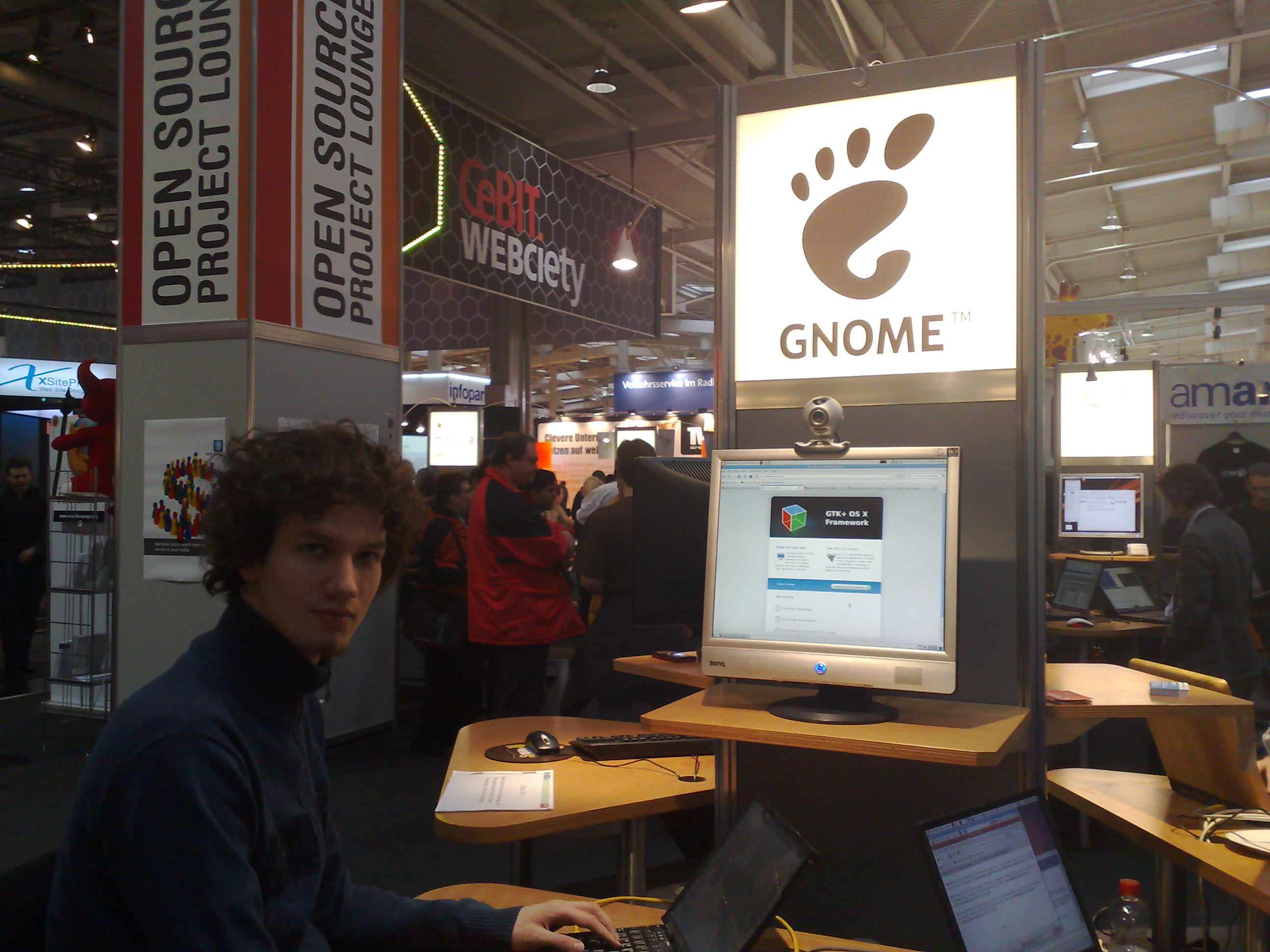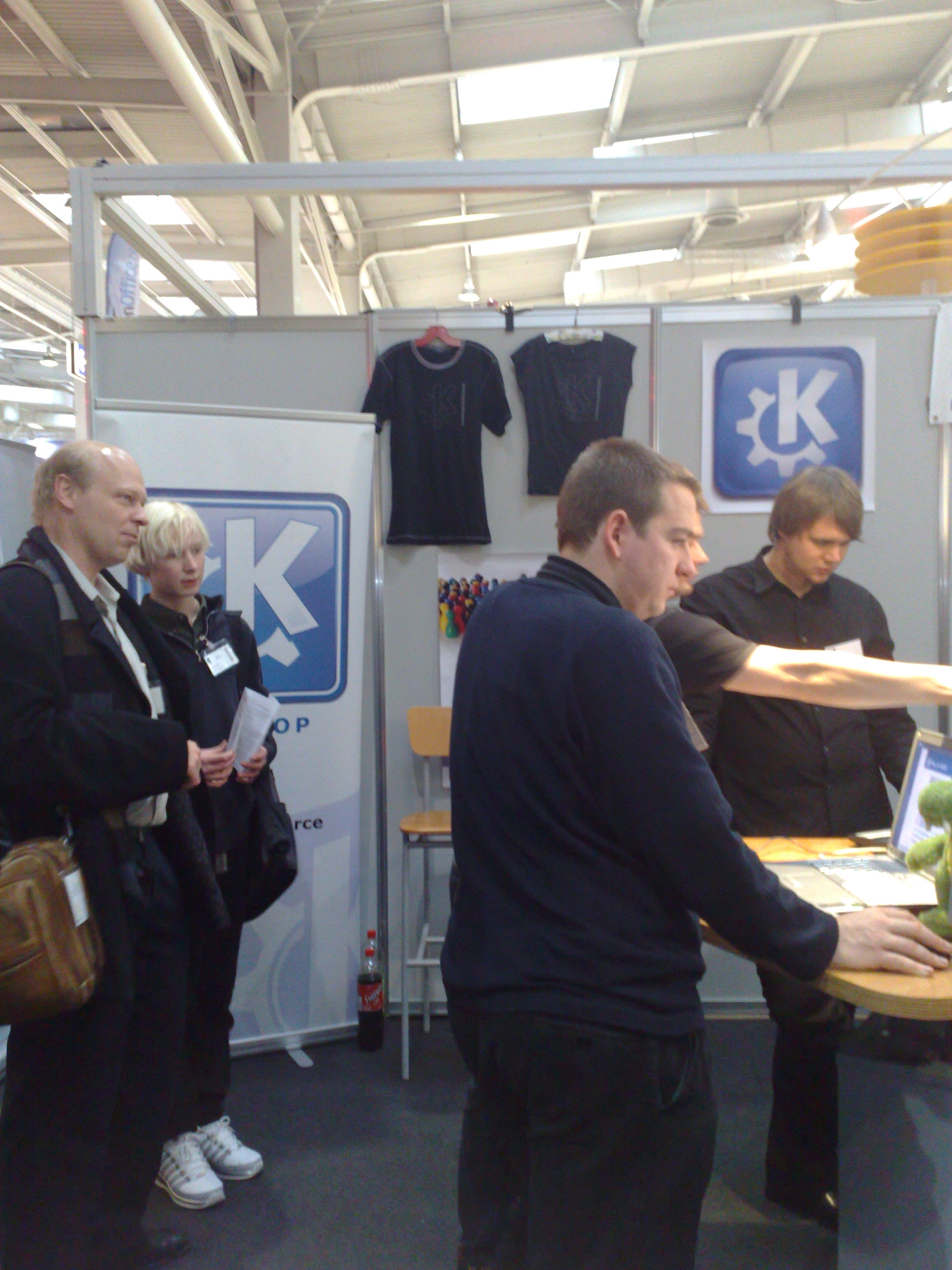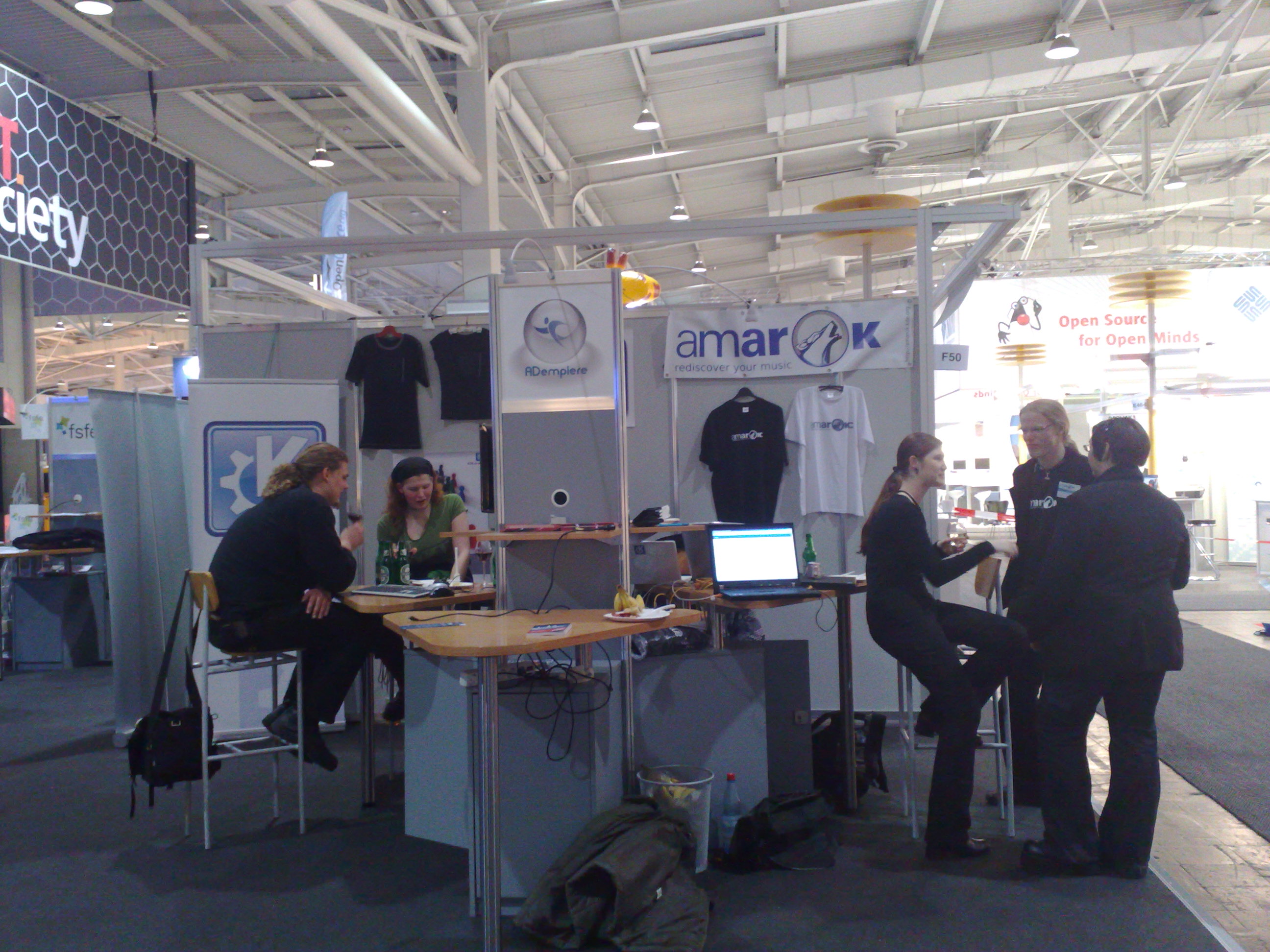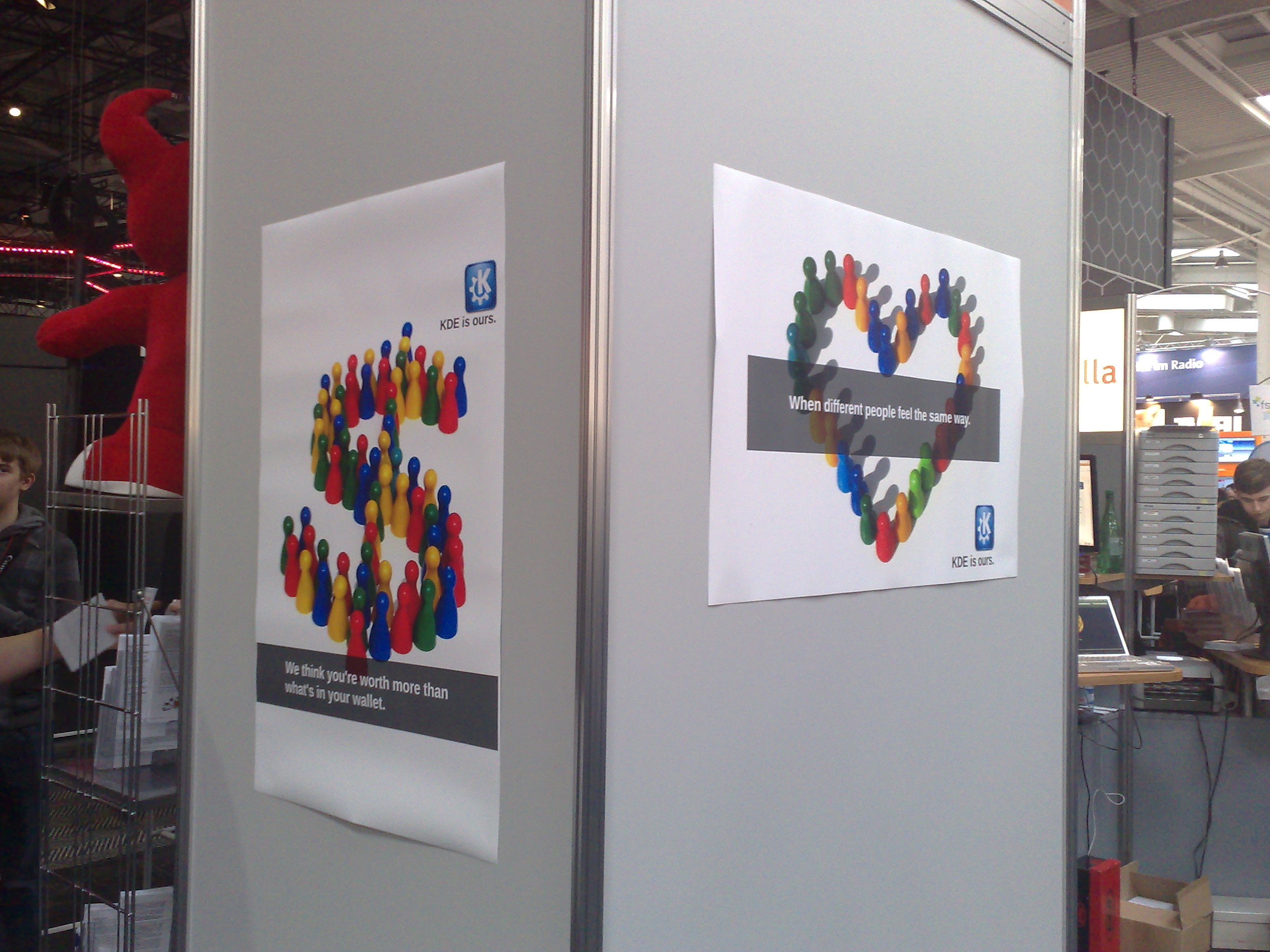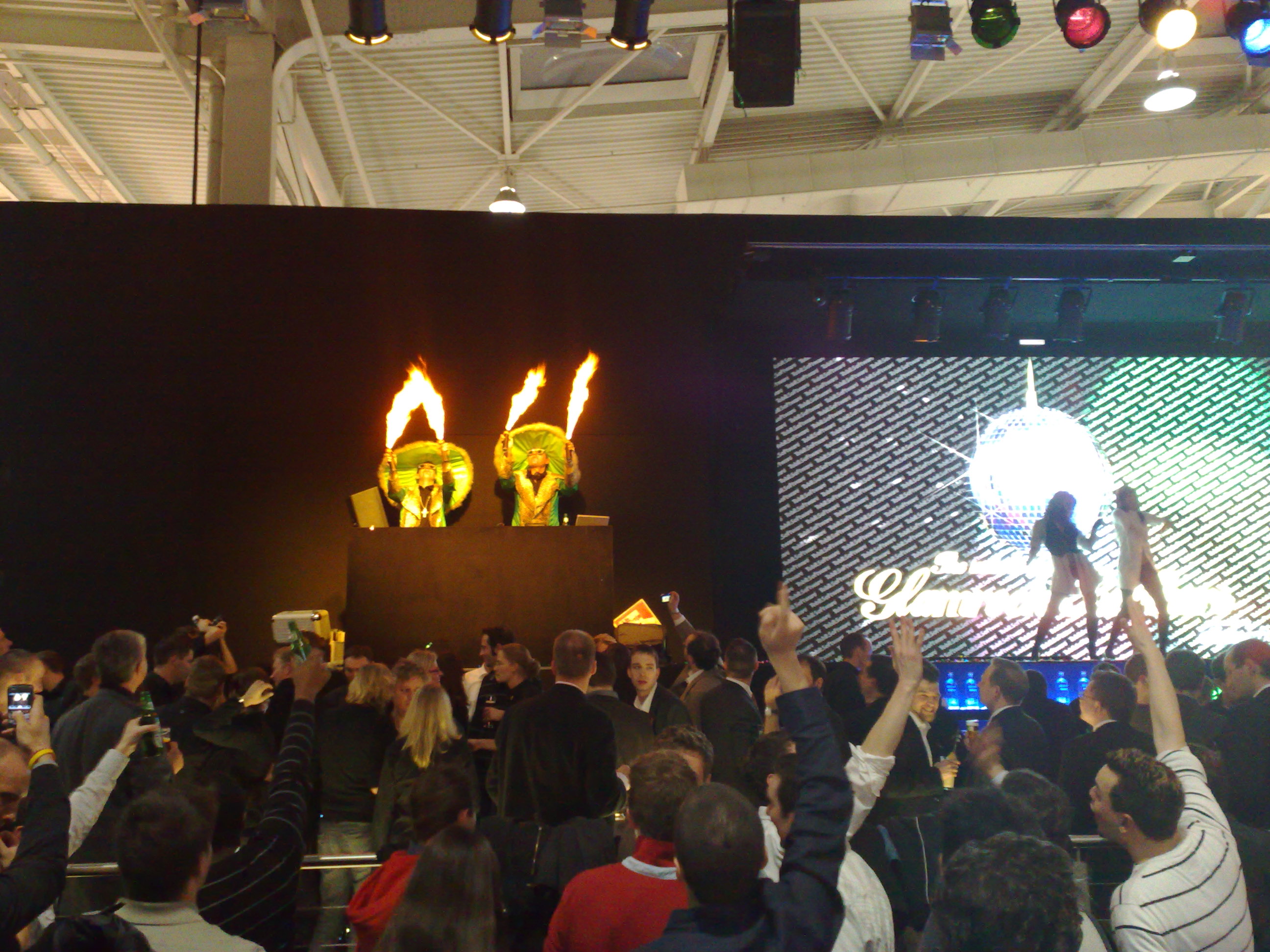
It is this time of the year again *yay*. The biggest and greatest Free Software conference took place in Brussels, Belgium. It’s good to see all those interested and passionate people care about Free Software. I hope that the (intellectual) gravity of the people gets more people interested and strengthens our communities. In fact, I feel it was one of the better FOSDEMs so far. Maybe even the best. We, GNOME, had a hand full (not kidding) of new members of our communities staffing the booth or just being available. I was very please to see new faces and to identify them as people who were very committed to Free Software and GNOME.

As indicated, we, GNOME, had a booth and a fun time entertaining people stopping by. With the help of many volunteers, we presented our most recent GNOME release, sold some t-shirts, and discussed our future ideas. It’s not necessarily a venue to convince people to use Free Software, or even to use GNOME. But I have the feeling we manage to get both messages across. Bar one case in which an unlucky fellah was angry about everything and especially that this Linux 20 we had installed wouldn’t ship Emacs by default. Other than that we showed people how cool the GNOME Shell extensions are, how to quickly launch applications, or how to access the notification area quickly. Or, yes of course, how to suspend. Or to shutdown…

I also had the pleasure of being interviewed by an Irish dude who produced episodes for Hacker Public Radio. I didn’t know about that but it seems to be a cool project. I don’t know when it will go live or whether it actually has been published already.

We also had panel with the governing bodies of GNOME and KDE. The intention was to debunk some myths and to make the work more visible. I was on the Panel (on behalf of GNOME) with Kat (from GNOME…) and Lydia from KDE. She was joined by Cornelius who serves on the KDE board for more than 9 years. We were lamenting about various aspects of our work such as where does money come from, where does it go to, what are the processes of getting rid of the money. But also why we were doing that, why we think it is important and what achievements we are proud of. Our host, Paul, was a nice and fun guy and did his job very well. I think it was a successful event. It could probably have been better in the sense that we could have focussed more on the audience and making them want to step up and take over responsibilities. But the way it went and the participation of the audience makes me happy nonetheless.

Update: The interviews have been posted: http://hackerpublicradio.org/eps.php?id=1452


